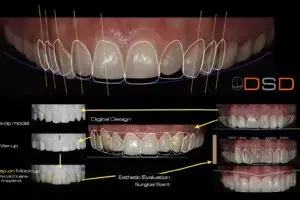After undergoing a root canal treatment, many patients wonder if they need a crown to protect their tooth. At Najmi Dental, we aim to provide clear, comprehensive guidance on this important decision. Understanding when a crown is necessary and how it benefits your tooth can help you maintain a healthy smile for years to come.
Why Consider a Crown After a Root Canal?
A root canal treatment is a procedure that removes the infected or damaged pulp from within a tooth, effectively saving it from extraction. However, this process can leave the tooth more fragile and prone to fractures. Here’s why a crown is often recommended post-root canal:
- Strengthening the Tooth: After a root canal, the tooth can become brittle and more susceptible to cracks. A crown acts as a protective cap, restoring strength and functionality to the treated tooth.
- Preventing Re-infection: A crown provides a secure seal over the tooth, preventing bacteria from entering and causing a re-infection.
- Restoring Aesthetics and Function: Crowns can be designed to match the color and shape of your natural teeth, ensuring a seamless and attractive appearance while restoring full chewing ability.
When is a Crown Essential?
Not all root canals require a crown, but there are specific situations where a crown becomes essential:
- Molars and Premolars: Teeth located at the back of the mouth endure significant pressure when chewing. A crown is typically necessary to protect these teeth after a root canal.
- Extensive Decay or Damage: If a significant portion of the tooth structure has been compromised due to decay or damage, a crown helps to reinforce the remaining structure.
- Teeth with Large Fillings: If the treated tooth already has a large filling, the remaining tooth structure may not be sufficient to support the filling, making a crown a better option.
Situations Where a Crown May Not Be Required
While crowns are generally recommended, there are cases where a crown might not be necessary:
- Front Teeth (Incisors and Canines): These teeth experience less pressure during biting and chewing compared to molars. If the tooth structure remains largely intact after the root canal, a filling may suffice.
- Minimal Tooth Damage: In instances where the tooth has only minor damage and maintains most of its natural structure, a filling or onlay might be enough to restore function.
The Process of Getting a Crown
At Najmi Dental, we ensure a smooth and comfortable process when fitting a crown after a root canal. Here’s what to expect:
- Tooth Preparation: The dentist will shape the treated tooth to ensure the crown fits securely.
- Taking Impressions: An impression of the prepared tooth is taken to create a custom-fit crown that matches the natural appearance of your other teeth.
- Crown Placement: Once the crown is ready, it is placed over the tooth and bonded securely. This provides a durable, long-term solution to protect the tooth.
Benefits of Getting a Crown Post-Root Canal
Choosing to get a crown after a root canal can offer several benefits, including:
- Longevity of the Tooth: Crowns help extend the life of a tooth treated with a root canal, allowing it to function normally for many years.
- Improved Appearance: A crown can restore the tooth’s natural look, enhancing your smile.
- Enhanced Comfort: With a crown, chewing and biting feel more natural, as the tooth is fully restored to its original shape and function.
Conclusion
Deciding whether to get a crown after a root canal depends on various factors, including the location of the tooth and the extent of the damage. At Najmi Dental, we are here to provide personalized advice based on your specific needs. Protecting your teeth is our priority, and we aim to provide the best solutions for your oral health.
If you are unsure about the longevity of a root canal without a crown, our next blog will address this question in detail. Read about how long a root canal lasts without a crown.


